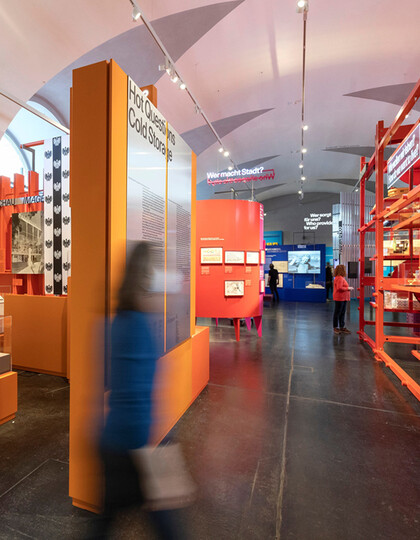30.09.2020 to 01.10.2020 - Kunsthalle Wien
Touching the Elephant: Practices and Politics of Social Distanc_ing
ART


A conversation-performance in the exhibition … of bread, wine, cars, security and peace
With Katalin Erdődi, Vlatka Frketić, Dan Christian Ghattas, Ursula Hofbauer, Araba Evelyn Johnston-Arthur, Jet Moon, Marika Schmiedt, KT Zakravsky/ZAK RAY
Concept and moderation: Persson Perry Baumgartinger and Andrea Hubin
In the last week of the exhibition … of bread, wine, cars, security and peace, we invite you to a series of conversations with participants from the realms of activism, cultural production, thinking, and performance to critically ‘approach’ the notion of “social distancing” from different perspectives. Not only due to the various safety regulations, the event itself becomes an experimental setup, in the sense of a shared – a collective yet fragmentary – experience of intimacy and distance. Even before corona it wasn’t given that art exhibitions are social spaces, places to accommodate discussions and collective actions. We want to ask: Hasn’t the proverbial (baby) elephant – the Austrian measure for safe distance – always been in the room, and presumably not just in the art world? Has “social distancing” not rather been an everyday experience for many groups in society for a long time?
These questions also arise in relation to the current use of the term “social distancing”. In the past months, many have noted that this phrase mistakes one thing: “being social” doesn’t necessarily imply physical contact, touching, or being close in the here and now. However, inequality and power relations also find expression in spatial constellations, as sociologist Richard Sennett writes: “Economic inequalities translate in everyday experience as social distance.” Practical difficulties in complying with official regulations and following preventive measures affect, in many cases, groups that were already marginalized by mainstream society. And the so-called “risk groups” are all too familiar with the imperative to withdraw and politely decline well-intended invitations when social spaces are not modelled to their needs for well-being. The techno-culture theorist Nishant Shah states that the promise of intimacy can also be a threat – and suggests that physical closeness and touch do neither axiomatically generate safe spaces nor are they free from privileges and power.
The conversations will explore the political contexts in which structures of exclusion and inequality are expressed as distance; individual forms of reaction manifesting in practices between self-defense and self-empowerment will be discussed as well.
All conversations take place IN the exhibition around the Space of Questions table, however we will deliberately refrain from group discussions. Two conversation partners will take their place at the table at a time, international guests will participate via Zoom. The audience is free to choose their place in the room, can stroll through the exhibition, just consume the discussions per live stream, or submit questions via a special channel on site – a tin can telephone.
“Genuine conversation is not possible until people are within seven meters of each other,” says urban designer Jan Gehl. Which leeways, hideouts, and elasticities does this contact zone hold in store?
Kunsthalle Wien
opening hours
| mo: | closed |
| tue-wed: | 10:00 – 18:00 |
| thu: | 10:00 – 20:00 |
| fri-sun: | 10:00 – 18:00 |
contact
Museumsplatz 1,
A-1070 Vienna
Tel.: +43-1-52189-0
office@kunsthallewien.at
www.kunsthallewien.at






